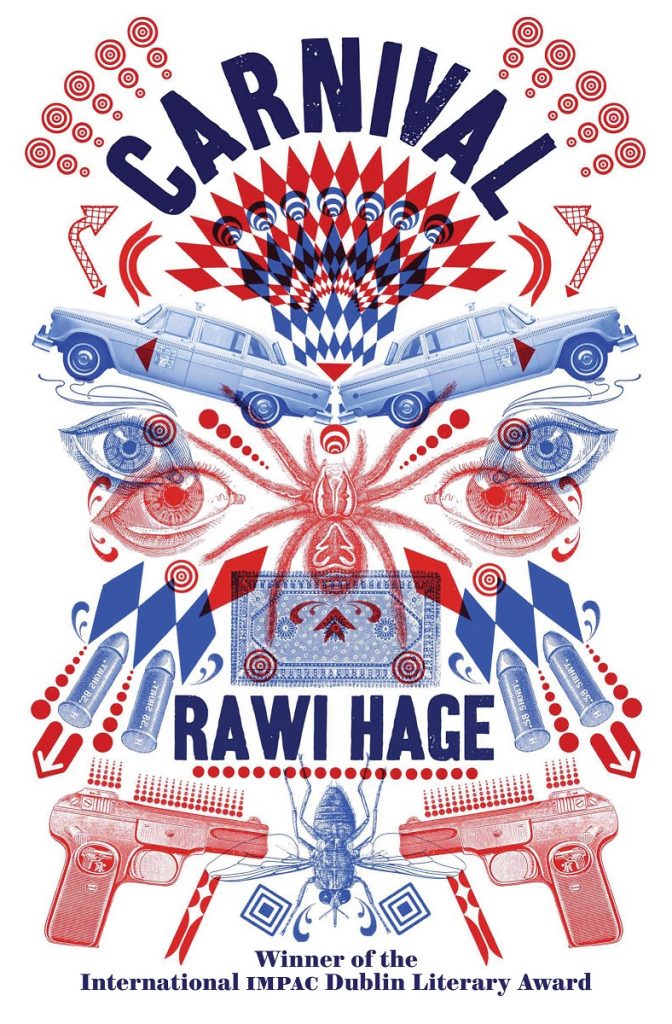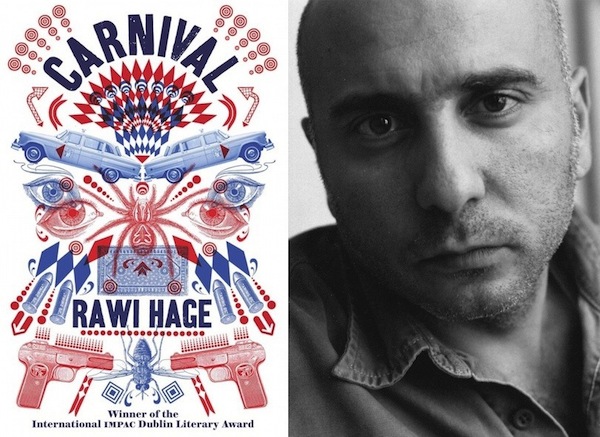
A good piece of literature should always leave one feeling that each page was worth the time it took to turn it.
Unless it’s truly horrid writing (or has been penned by anyone with a reality television show), most books will accomplish that. But a great book will see the main character reaching their arm out of the pages to grab yours and let you feel everything they’re feeling.
That’s the case with former Concordia graduate Rawi Hage’s latest novel, Carnival.
The son of a trapeze artist and flying carpet pilot, Fly is a taxi driver who likes to wander but doesn’t like customers who smell. Or puke in his car. We meet him just as the carnival arrives in town, attracting hordes of tourists and bringing with it a sense of the strange and mysterious.
Fly identifies with a group of drivers that are called, well, “flies” because they like to drive around to pick up customers, unlike the drivers he calls “spiders” because they simply sit at a hangout called Café Bolero all day and wait for customers to come to them.
It’d be easy to peg Fly with the timid loner archetype – after all, his mother is dead, his father is gone and the bearded lady who raised him is also dead. But that’s not the character Hage presents. Fly interacts with many people throughout the book, has friends and, for lack of a better word, is a total badass. He beats up steroid-heads, works for a dealer, goes to an S&M dungeon and says gems such as, “I could substitute their cocaine lines with fishing ropes that sailed up their nostrils and down their brains.”
That’s not to say he doesn’t have his hang-ups. Interspersed among the novel are lengthy passages describing what he fantasizes about when he masturbates, which he does lying on his father’s old flying carpet, in the middle of his book-filled apartment. While they show his creativity (he often imagines himself fighting wars and rescuing maidens), they hint at a desire to escape from his life, or to have done something else with it. “It is always a pleasure to meet dirty novelists,” he tells a customer. “I once contemplated becoming one myself…but instead I stopped trying and picked up another creative habit that has kept my fingers busy ever since.”
The story is told through little vignettes with titles such as, “Dogs” and “Guns.” Fittingly enough, the passages evoke the feeling of being at a carnival – catching glimpses of strange faces and acts in quick succession and becoming entranced in the atmosphere. Coupled with the lack of quotation marks, it’s an interesting format that, as one works though the five acts that make up the story, makes sure the reader is paying absolute attention.
It’s easy to see why Carnival made Hage one of the finalists for the Rogers Writers’ Trust Fiction Prize. Although Fly doesn’t belong with the spiders who work around him, the strands of the story weave tightly around the reader, leaving one tangled in a web of enchantment.




